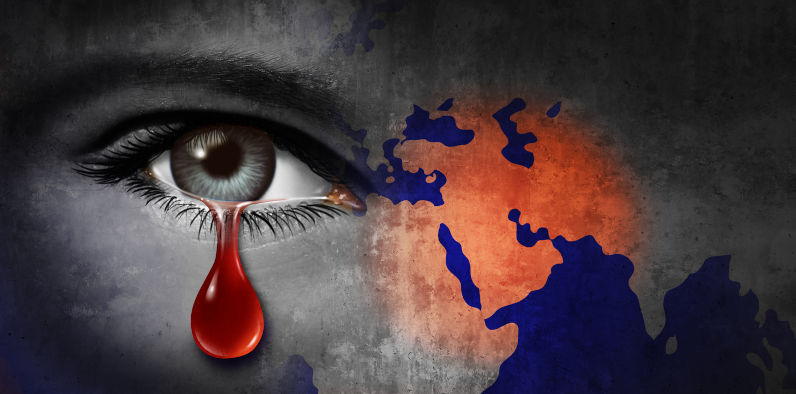Will Australia be off to war in the Middle East again?
September 4, 2024
There is a disturbing void in Australian political debate about the prospects of another regional war in the Middle East.
The mainstream media covers, almost as an afterthought now, the perilous and deteriorating plight of Palestinians in Gaza, the outbreak of disease, the deaths of dozens of civilians daily from Israeli military action, and the progress of so-called ceasefire negotiations.
The focus of domestic politics has been on whether Palestinians fleeing Israel’s genocide should or should not be granted visas. An important issue no doubt, but rather less important than what Australia could and should be doing in meeting its international obligations relating to the prevention of genocide and supporting efforts to both end the present conflict and prevent a broader Middle East war.
For we could well be on a cusp of a major war between Israel and Iran and their respective supporters. A war that has the potential to draw in other powers, including the United States, Russia and China. A war that could see the Straits of Hormuz closed, cutting off over 20% of global oil supplies. A regional war with global implications that could well be cataclysmic.
Currently the prospects for war hang in the balance. Iran has yet to respond to a second major Israeli provocation (the assassination of Hamas’ political leader Ismail Haniyeh following on from the air strikes against the Iranian consulate in Syria in April) but has indicated that it will.
It appears that with no politically tenable outcome from Prime Minister Benjamin Netanyahu’s disastrous foray into Gaza, along with the simmering conflict with Hezbollah across the Lebanese border, that the Israeli strategy is to draw the United States into a war in the Middle East with the aim of destroying or defeating Iran.
Given the enormous consequences of a regional war in the Middle East, it is rather concerning that there is no debate within Australia on how this can be prevented and what will our response be if such a war does indeed start. Not by our politicians, the media or the strategic policy/international relations fraternity.
Is this a case of “the dog that did not bark”? Are conversations occurring within the defence department, the National Security Committee and with our American allies that we are none the wiser about? Will the Australian Parliament and the public be presented with a fait accompli which sees a deployment of the Australian Defence Force to another war in the Middle East?
Before Australia commits itself to another disastrous war, perhaps it is time for reflection upon our recent experiences. From the folly of the 2003 Iraq war, that could well in historical terms be considered the start of the decline of the American empire, to 20 years in Afghanistan where we managed to “replace the Taliban with the Taliban”, to Australia being a party to the proxy war against Russia that is going disastrously for both Ukraine and the West, and the embarrassing flop of Operation PROSPERITY GUARDIAN where the Houthis have all but defeated the ‘might’ of the United States military.
Given the strategic blunders and miscalculations of Australia’s recent military misadventures, it might be wise to pause before making an even bigger blunder.
The Albanese Government must make clear its position on Australian involvement in a Middle East war if it breaks out.
Our elected representatives should demand that any decision to involve Australia in a Middle East war be decided by the Parliament.
The potential ramifications of Australian involvement in this looming war could well dwarf, by a significant margin, our experience of war since the end of World War II across all the elements of national power. If Australia is a democracy, this decision is far too important to be left to the prime minister or executive government alone!

